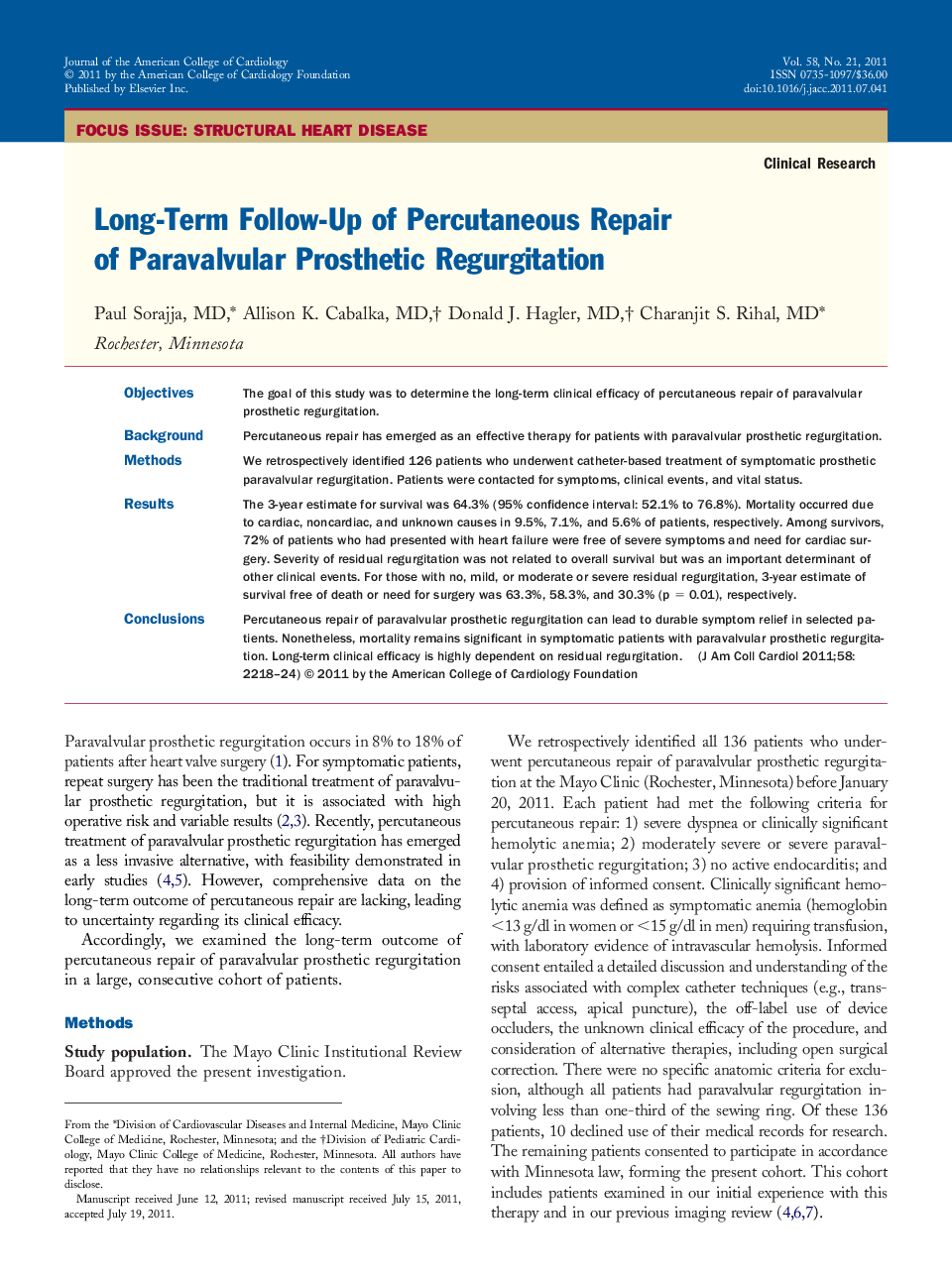| Article ID | Journal | Published Year | Pages | File Type |
|---|---|---|---|---|
| 2947466 | Journal of the American College of Cardiology | 2011 | 7 Pages |
ObjectivesThe goal of this study was to determine the long-term clinical efficacy of percutaneous repair of paravalvular prosthetic regurgitation.BackgroundPercutaneous repair has emerged as an effective therapy for patients with paravalvular prosthetic regurgitation.MethodsWe retrospectively identified 126 patients who underwent catheter-based treatment of symptomatic prosthetic paravalvular regurgitation. Patients were contacted for symptoms, clinical events, and vital status.ResultsThe 3-year estimate for survival was 64.3% (95% confidence interval: 52.1% to 76.8%). Mortality occurred due to cardiac, noncardiac, and unknown causes in 9.5%, 7.1%, and 5.6% of patients, respectively. Among survivors, 72% of patients who had presented with heart failure were free of severe symptoms and need for cardiac surgery. Severity of residual regurgitation was not related to overall survival but was an important determinant of other clinical events. For those with no, mild, or moderate or severe residual regurgitation, 3-year estimate of survival free of death or need for surgery was 63.3%, 58.3%, and 30.3% (p = 0.01), respectively.ConclusionsPercutaneous repair of paravalvular prosthetic regurgitation can lead to durable symptom relief in selected patients. Nonetheless, mortality remains significant in symptomatic patients with paravalvular prosthetic regurgitation. Long-term clinical efficacy is highly dependent on residual regurgitation.
